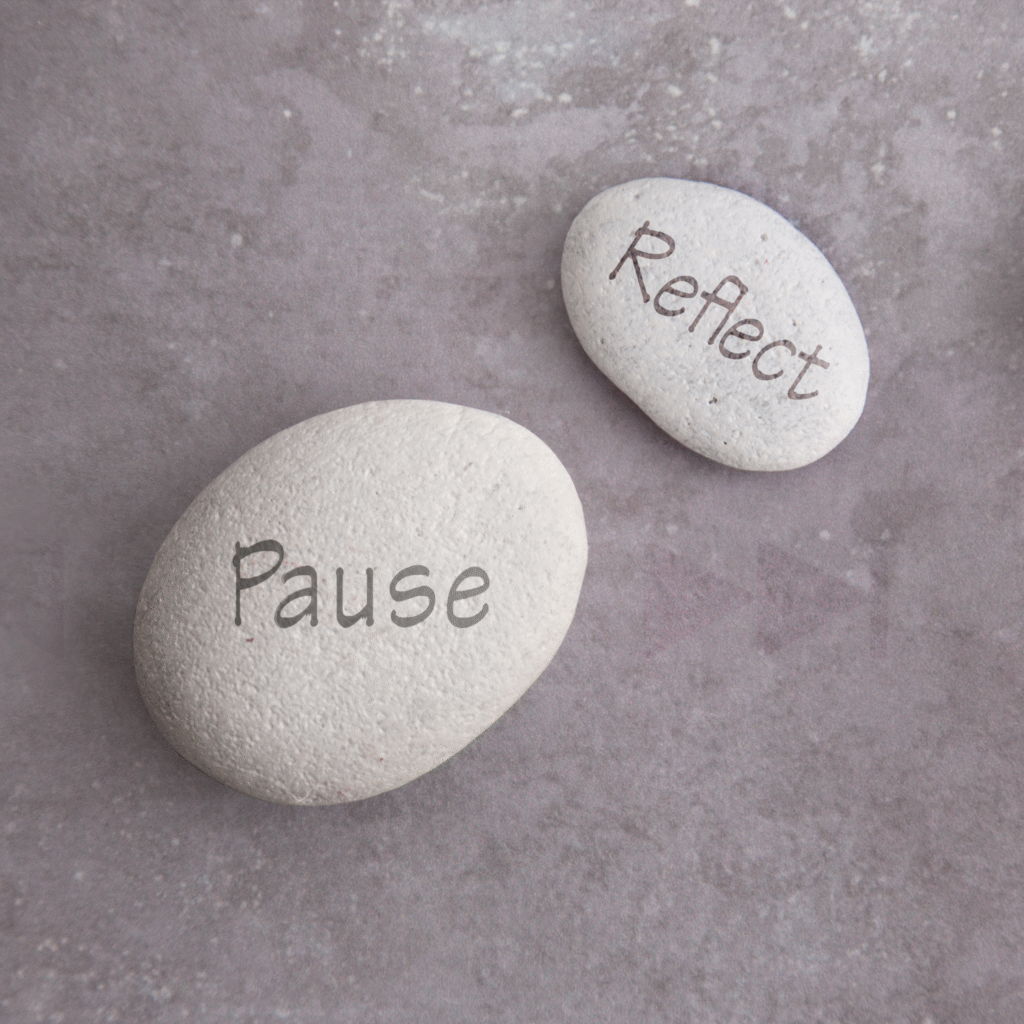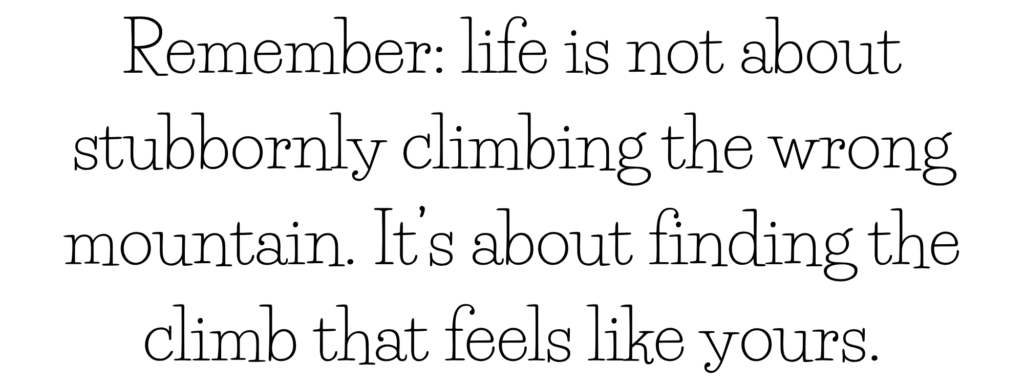We’ve all heard the advice: “Set a goal and never give up.” It sounds powerful, but in reality, not all goals are worth holding onto forever. Some inspire us and pull us forward. Others drain us, leaving us stuck in frustration, confusion, or even guilt.

The truth is, not every goal we set is the right one for us. And sometimes, the bravest thing you can do is pause, step back, and ask:
“Am I chasing the wrong goal?”
This doesn’t mean you’ve failed. It means you’re willing to be honest with yourself. Let’s explore how to recognize when a goal doesn’t fit anymore — and what you can do about it.
Why We End Up Chasing the Wrong Goals
Before we dive into the signs, it’s worth asking: why would someone even chase the wrong goal in the first place?
Here are some common reasons:

- Societal pressure. We’re told certain goals equal success — a stable career, financial milestones, a particular lifestyle — so we pursue them without asking if they truly matter to us.
- Family or peer influence. Sometimes we adopt goals to please others, not because they align with our own values.
- Old versions of ourselves. A goal that once mattered deeply may no longer fit the person we’ve become.
- Ego attachment. We don’t want to look like we’ve “quit,” so we keep pushing even when the goal drains us.
Knowing these roots helps you be kinder to yourself. You didn’t choose a “wrong” goal because you’re careless. You chose it because, at the time, it felt right — or because you didn’t yet know better.
Signs You Might Be Chasing the Wrong Goal
Here are some clear signals that a goal might not be in alignment with who you are today.
1. You Feel More Drained Than Inspired
Every goal requires effort, discipline, and sacrifice. But the right goal also gives something back: energy, excitement, or a sense of meaning.
If you constantly feel drained, uninspired, or heavy when you think about your goal, it may not be the right fit anymore.

2. Progress Doesn’t Feel Rewarding
When you’re pursuing the right goal, even small wins feel satisfying. But if progress feels empty — like checking off tasks without joy — that’s a red flag. Sometimes the climb itself reveals whether the mountain is yours to climb.

3. You’re Motivated by Guilt or Fear
Ask yourself:
- Am I chasing this goal because I want it?
- Or because I’ll feel guilty if I stop?
- Or afraid of what others might think if I change direction?
If fear or guilt are your main drivers, it’s likely the goal isn’t truly aligned with your values.

4. You Keep Imagining Letting It Go
Here’s a powerful sign: when you think about releasing the goal, do you feel relief instead of regret? That’s your inner compass whispering the truth. Sometimes the thought of quitting feels lighter than the thought of continuing — and that’s worth paying attention to.

5. It Doesn’t Fit Who You’re Becoming
We evolve. Goals that mattered to you five years ago may no longer resonate with the person you are today. If you feel like your goal belongs to an “old version” of yourself, it might be time to update it.

6. You’re Sacrificing What Truly Matters
If chasing your goal forces you to consistently ignore your health, relationships, peace of mind, or integrity, it’s a strong sign that something’s off. The right goals may challenge you, but they won’t destroy the things that make life meaningful.

The Difference Between a Hard Goal and a Wrong Goal

It’s important to make one distinction: not every difficult goal is a wrong goal.
- A hard goal stretches you but still feels worth it. You may struggle, but deep down, you know it aligns with who you are.
- A wrong goal weighs you down, drains your energy, and feels disconnected from your true desires, no matter how much effort you put in.
Learning to tell the difference is key. Sometimes we mistake challenge for misalignment. The question to ask yourself is: Am I struggling because this is genuinely hard, or because it’s not meant for me?
What to Do If You Realize You’re Chasing the Wrong Goal
Recognizing misalignment is only the first step. The next step is courage — the courage to redirect. Here’s how:
1. Give Yourself Permission to Change
There’s no shame in shifting course. Changing your goal doesn’t erase the effort you’ve already put in — it transforms it into wisdom.

2. Reflect on What You Really Want
Ask yourself:
- What values matter most to me right now?
- If no one else’s opinion mattered, what would I choose?
- What kind of person do I want to become through my goals?
These questions can help you uncover goals that feel alive and authentic.

3. Extract the Lesson
Even “wrong” goals aren’t wasted. Maybe they taught you discipline, resilience, or what doesn’t work for you. Every pursuit leaves behind some form of growth.

4. Redefine Success
Instead of clinging to old definitions (like wealth, titles, or recognition), create a success definition that reflects your current self. For some, success might mean freedom. For others, peace. For others still, contribution. Let your goals grow from that foundation.

5. Take Small Steps Toward Realignment
You don’t need to overhaul your entire life overnight. Start with small adjustments. Maybe you release part of your goal while holding onto the piece that still matters. Or maybe you gently shift toward something new while phasing out the old.

The Freedom of Choosing the Right Goals
It can feel scary to admit you’ve been chasing the wrong goal. But it’s also freeing.
When you let go of goals that no longer serve you, you create space — space for new dreams, new energy, and a more authentic version of success.

So if something feels heavy, misaligned, or lifeless, it’s okay to pause. To reevaluate. To choose again.
Because the right goals won’t just challenge you — they’ll also nourish you. They’ll feel like growth, not just grind. They’ll make you more of who you are, not less.
And in the end, that’s the kind of pursuit worth giving your whole heart to.





